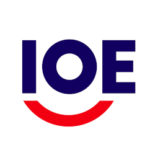Job Description
International Organisation of Employers (IOE)
Description
The International Organisation of Employers (IOE) is requesting expressions of interest for an independent consultant to support IOE’s work on employment-friendly tax policies.
About us:
IOE is the largest private sector network in the world, representing 50 million businesses through 150 national employers’ organisations. IOE is the sole representative of business in social and employment policy debates taking place at the International Labour Organization (ILO), the United Nations, G20 and other global forums. IOE is recognised for its unique expertise, advocacy, and influence as a powerful and balanced voice for business at the international level. IOE consolidates the perspectives and priorities of national employers’ and business organisations in one single, effective, and coherent voice. Our vision is to create a sustainable economic environment worldwide, promoting free enterprise that is fair and beneficial to both business and society.
About the consultancy:
In many economies across the world, public debt has reached an all-time high, making it more likely that the world will experience certain pressures on overall economic growth. These pressures may mean weaker currencies, lower investor confidence, and reduced GDP growth. Although public debt can be positive in certain circumstances, it becomes problematic when it reaches a certain threshold where economies become inherently unstable and unable to generate high demand, which will negatively affect businesses and employment. Governments can sometimes look at increasing taxes to generate revenue and reduce public debt. The specific reasons for increasing taxes can vary depending on the economic and political climate, government priorities, and the specific needs and challenges of a country.
Employers’ and business organisations can advocate governments for specific tax-policies and incentives that can help reduce the tax burden on both employers and employees and stimulate employment.
For example,
- Governments may allow businesses to deduct expenses related to employee training and education programs from their budgets. This encourages businesses to invest in the skills development of their workforce and support employment and job creation.
- Tax incentives specifically targeted at startups and small businesses to encourage entrepreneurship and stimulate economic growth. These incentives may include deductions for certain business expenses, reduced tax rates, or other exemptions.
- Some countries provide tax incentives for businesses that offer flexible work arrangements, such as telecommuting or flexible working hours. These incentives aim to promote work-life balance and improve employee satisfaction.
- Some countries offer tax incentives for businesses that adopt environmentally friendly practices or invest in renewable energy projects. These incentives may include tax credits or grants.
- Employers may also receive credits available if they hire individuals from certain targeted groups, such as long-term unemployed individuals. This credit can help offset the cost of hiring and training new employees.
Scope of work
- Provide a brief overview of tax ecosystems, fiscal policy (encompassing both tax and government spending), as well as structural issues impacting employment.
- Identify and analyse effective strategies and practices that employers’ and business organisations can utilise to positively influence government tax policies and enhance employment creation and inclusive economic growth (best practices).
- Identify challenges to optimising job creation (g. lack of political will and commitment of all relevant stakeholders, lack of strong leadership on policy development and implementation, lack of consultations with the private sector through employer organisations).
- Identify examples of regional and contextualised government tax policies that stimulate employment, and provide suggestions for improvements.
Timeline: April 2024 to May 2024
Location: Home based/Remote
Competencies:
- Expertise on tax and employment policy, as well as the linkages between employment, tax-friendly environments, incentives to job creation and economic growth.
- Excellent knowledge of private sector and/or a great experience with employers’ networks and business
- Excellent research skills, policy analyses, critical thinking skills, and a good command of tools like Microsoft Word and Excel.
- Ability to distil complex information clearly and concisely.
Funding: the total funding available is 3000 EUR
Please send your CV and your proposal to: projectprocurement@ioe-emp.com with the email subject line: Tax-Friendly Policies 2024. Deadline 15 March 2024.

